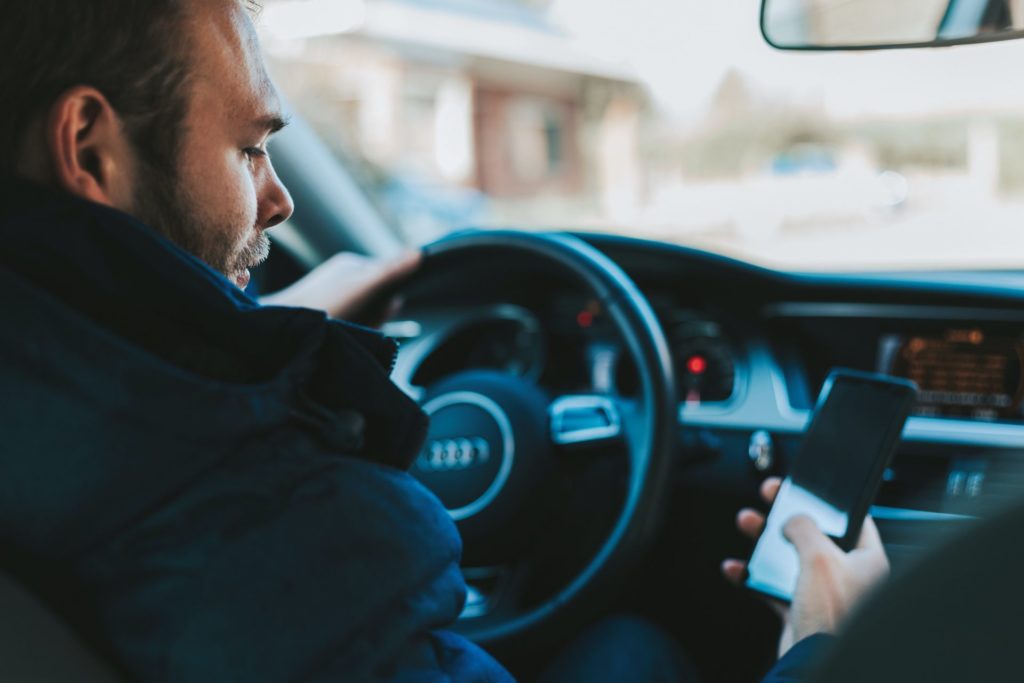Fines for using a cell phone while driving in Belgium, even if it’s just on your lap rather than against your ear, are rising from €116 to €174 starting today (Thursday).
Distracted driving related to mobile phone use is responsible for around 50 deaths and almost 4,500 injuries on Belgian roads every year, Le Soir reports, and traffic fatalities are even on the rise in Flanders.
The change to the highway code, meant to clamp down on smartphone use while driving, was announced at the end of last year.
“We have updated the definition in the law so that it no longer applies only to portable phones but for any mobile electronic device with a screen. These you cannot use, hold or manipulate while driving,” the minister in charge of the bill Joris Vandenbroucke (Vooruit MP) explained at the time.
Vias, Belgium’s Institute for Road Safety, said the high figures for injuries and deaths related to cell phone use while driving means “it is logical to penalise this offence more heavily, especially as the phenomenon has diversified and increased in recent years.”
Phone must be secured in a holder
Under the new law, any phone used while driving must be attached to a holder. It cannot be left in the lap, on the dashboard or on the passenger seat.
As Vias determined in a study, one in eight drivers place their phone on their lap, although this is just as dangerous as holding it in their hand, as it requires them to have to look down and away from the road.
One in 20 drivers place the phone between their ear and shoulder to make a call, which is just as dangerous.
The phone will now have to be placed on an easily-accessible stand, and open to a GPS or music/radio application. It is forbidden to read messages or emails, or stream videos.
Related News
- More than 1 in 4 Belgians use mobile phones whilst driving
- ‘Ban all electronic devices behind the steering wheel,’ urges Belgium’s interior minister
- Clampdown on using smartphones as GPS
From 3 March, all mobile electronic devices with a screen will be affected by the offence, including tablets and e-readers. It is unclear whether Tesla's dashboards, which are capable of web browsing and watching videos, will also be affected by the ban.
When a car is parked, the screens can be used.
In order to check for these offences, the Belgian government is currently working on a legal basis for a pilot project to use AI-enhanced cameras that can detect whether a driver is using a phone. The PS and MR parties are against the idea, arguing that it would be too great an invasion of privacy.

